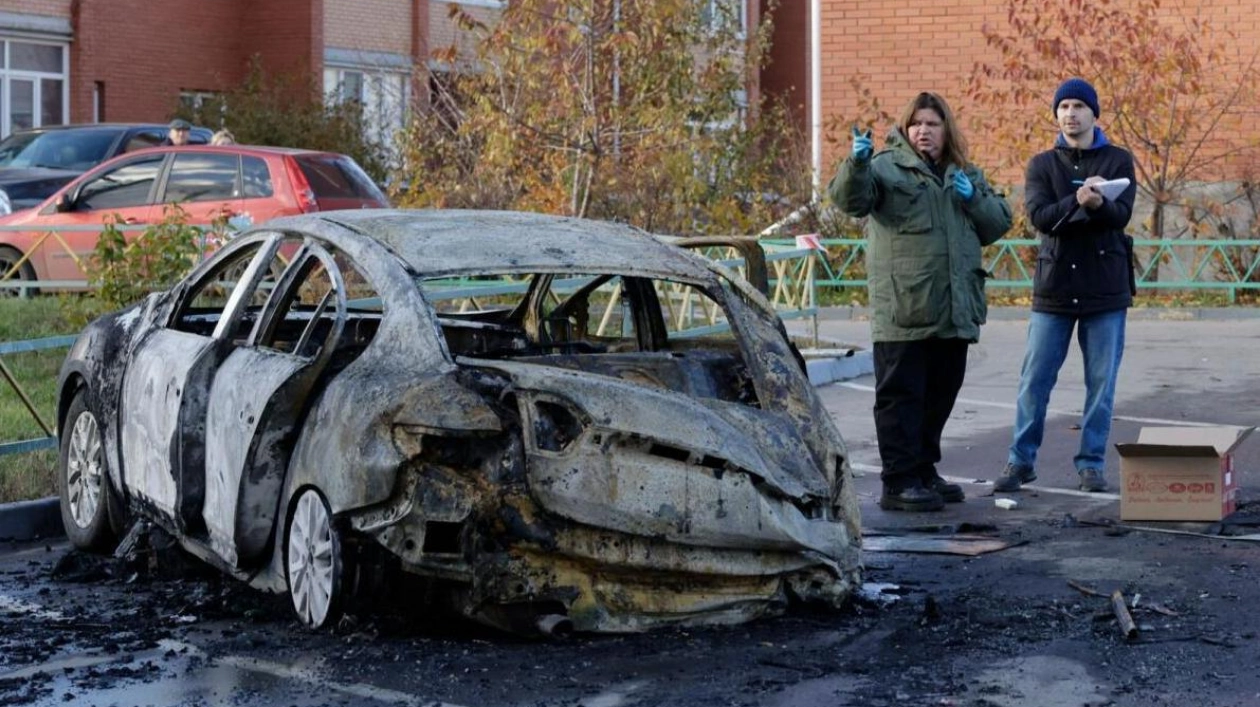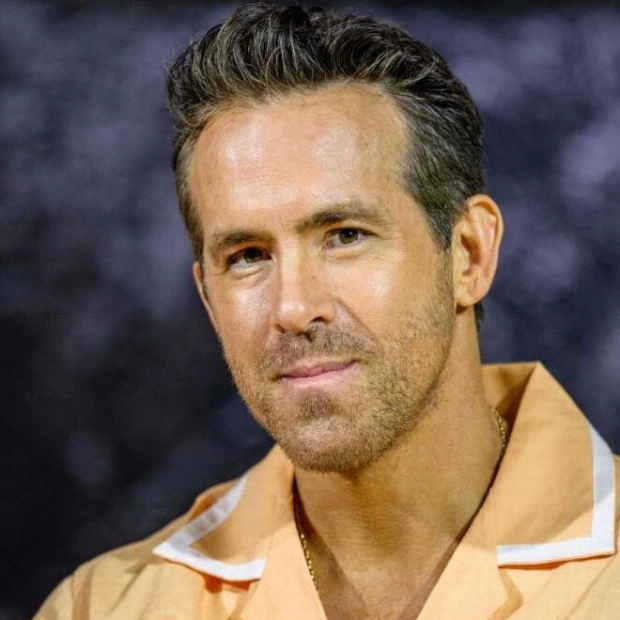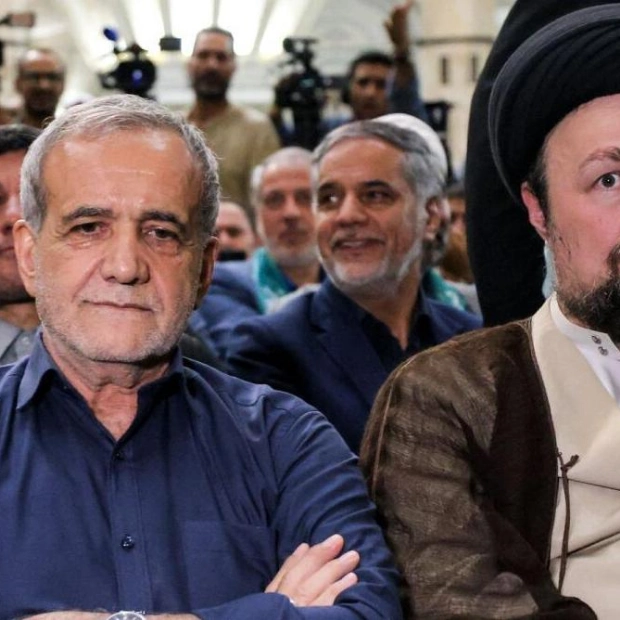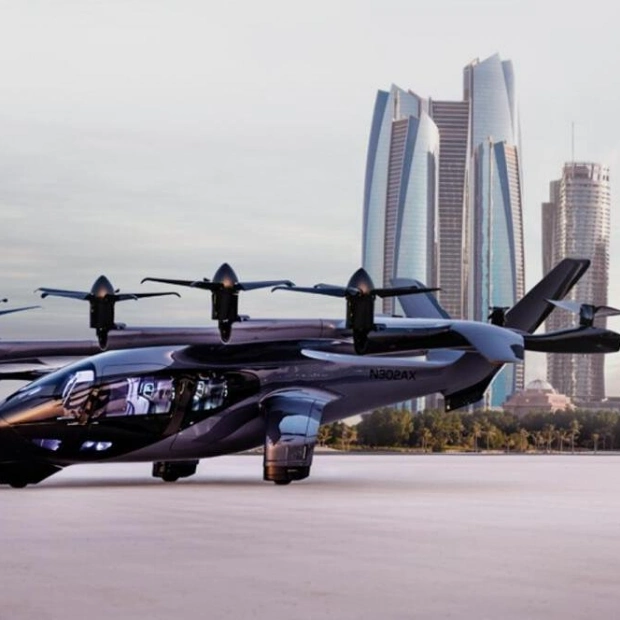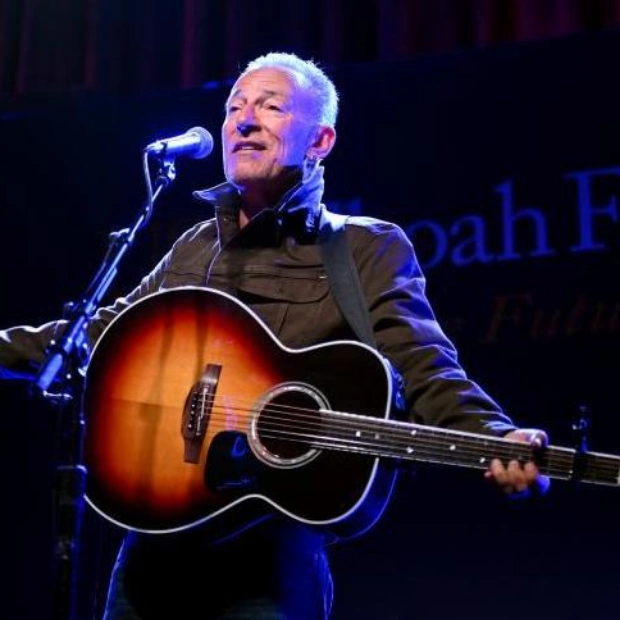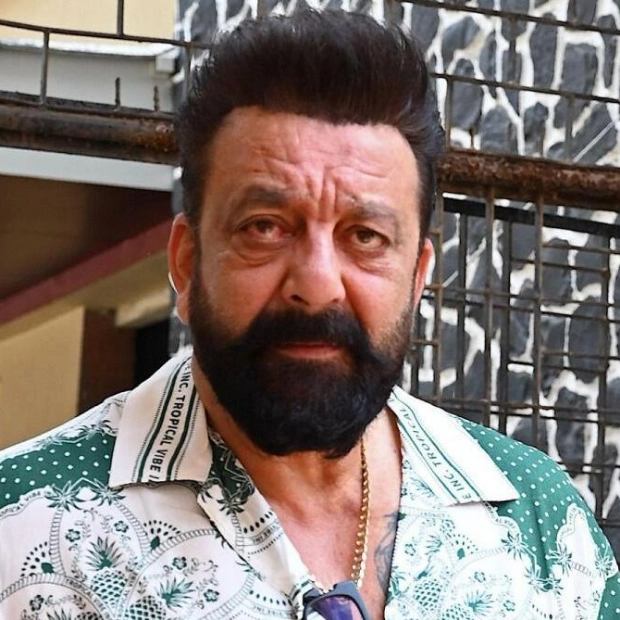Russian law enforcement officers examine a charred vehicle in the courtyard of residential buildings after a drone attack in the village of Sofyino, Moscow region, on November 10, 2024. — AFP
Ukraine launched an assault on Moscow on Sunday, deploying at least 34 drones, marking the largest drone strike on the Russian capital since the conflict began in 2022. This attack compelled the diversion of flights from three of the city's major airports and resulted in at least one injury. The Russian defense ministry reported that air defenses neutralized another 36 drones over other western regions of Russia within a three-hour span on Sunday.
"An attempt by the Kyiv regime to execute a terrorist attack using aircraft-type drones on Russian territory was thwarted," the ministry stated. Russia's federal air transport agency confirmed that Domodedovo, Sheremetyevo, and Zhukovsky airports had to reroute at least 36 flights but later resumed operations. One individual was reported injured in the Moscow region.
A Russian law enforcement officer inspects the remnants of a drone following an attack in the village of Sofyino, Moscow region, on November 10, 2024. — AFP
Moscow and its surrounding region, home to at least 21 million people, is one of Europe's largest metropolitan areas, comparable to Istanbul. In response, Russia reportedly launched a record 145 drones overnight, according to Ukraine. Kyiv claimed its air defenses shot down 62 of these. Ukraine also asserted it targeted an arsenal in Russia's Bryansk region, where 14 drones were reportedly downed.
Unverified videos posted on Russian Telegram channels depicted drones flying across the skyline. The 2.5-year-old war in Ukraine is entering what some officials believe could be its final phase, as Moscow's forces advance at their fastest pace since the war's inception, and Donald Trump is elected the 47th president of the United States.
Trump, who assumes office in January, claimed during his campaign that he could secure peace in Ukraine within 24 hours, though he provided few specifics on how he would achieve this. When Ukrainian President Volodymyr Zelenskiy phoned Trump to congratulate him on his election victory, Tesla CEO and Trump supporter Elon Musk joined the call, according to media reports. Musk's company, SpaceX, provides Starlink satellite communication services crucial for Ukraine's defense efforts.
Kyiv, a frequent target of mass drone strikes from Russian forces, has retaliated with repeated drone attacks on oil refineries, airfields, and even Russian strategic early-warning radar stations. While the 1,000km frontline has predominantly resembled World War I trench and artillery warfare, drone warfare has emerged as one of the conflict's most significant innovations.
Both Moscow and Kyiv have invested in acquiring and developing new drones, deploying them creatively, and exploring new methods to neutralize them—from farmers' shotguns to advanced electronic jamming systems. Moscow has established a series of electronic "umbrellas" over the capital, with additional sophisticated layers over strategic buildings, and a complex network of air defenses designed to shoot down drones before they reach the Kremlin.
Both sides have repurposed inexpensive commercial drones into lethal weapons while boosting their own production. Soldiers on both sides have expressed visceral fear of drones, and both have used graphic video footage of fatal drone strikes in their propaganda efforts. Russian President Vladimir Putin, who aims to shield Moscow from the war's harsh realities, has condemned Ukrainian drone attacks on civilian infrastructure, such as nuclear power plants, as "terrorism" and vowed retaliation.
Moscow, Russia's wealthiest city, has thrived during the war, fueled by the largest defense spending surge since the Cold War. There were no signs of panic on Moscow's streets. Residents strolled with their dogs as the bells of onion-domed Russian Orthodox churches rang out across the capital.
Source link: https://www.khaleejtimes.com
